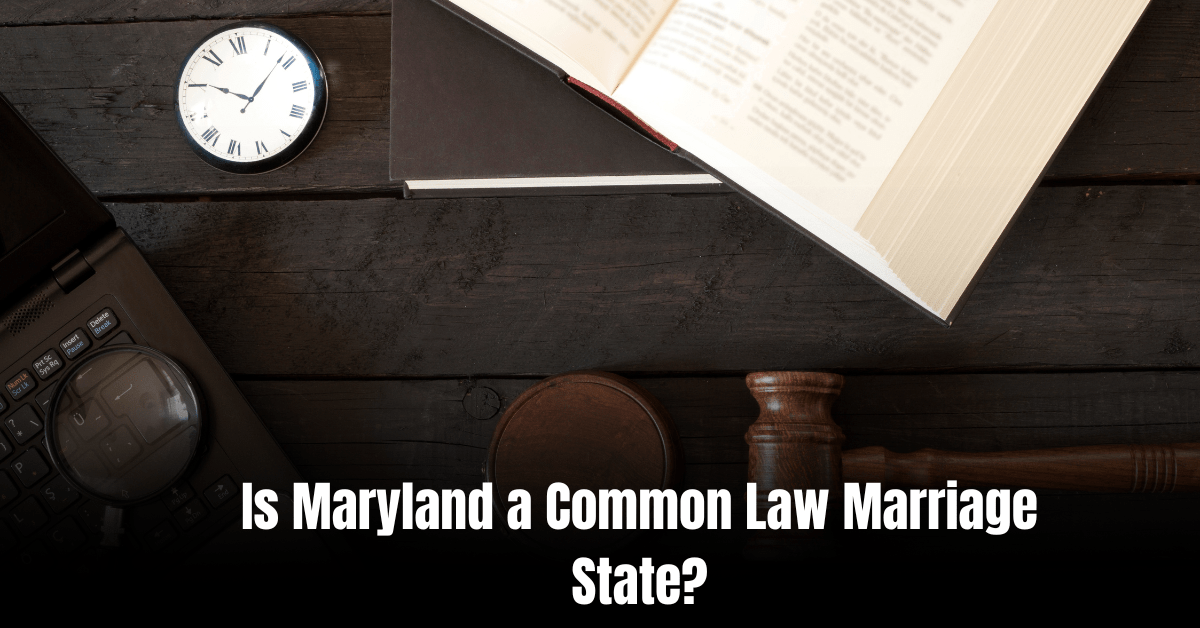Maryland does not recognize common law marriage. Only couples who are legally married have marital rights.
Maryland stands among the majority of states that do not grant legal status to common law marriages formed within its borders. This clear-cut stance means that no matter the duration of cohabitation or the shared aspects of life, couples in Maryland must obtain a formal marriage license to enjoy the rights and benefits of a legally recognized marriage.
Understanding this is crucial for couples who cohabitate, as they need to make informed decisions about their property, inheritances, and other legal matters that could be impacted by marital status. Maryland’s position on this matter encourages residents to seek official union or to take additional legal steps to ensure their partnerships are protected under the law.
Understanding Common Law Marriage In Maryland
Common law marriage refers to a situation where a couple lives together as a married couple without the formalities of a legal or ceremonial marriage. Historically, this type of arrangement was recognized for various reasons, including distance from legal jurisdictions, inaccessibility of court systems, or social custom. This system allowed couples in these situations to receive some of the legal recognition and benefits of marriage.
In Maryland, common law marriages are not legally recognized. This means that no matter the duration of a cohabitation period or the intentions of the couple, Maryland courts do not afford legal marriage status to those who have not entered into a legally sanctioned marriage. Yet, it’s important to highlight that if a common law marriage is legally recognized in another state where it was formed, Maryland might acknowledge the marriage as valid under the full faith and credit clause of the United States Constitution.
Requirements For Common Law Marriage In Maryland
Maryland does not recognize common law marriage as valid. Nonetheless, if individuals wish to establish a similar recognized union, they will need to fulfill specific criteria. First, both parties must consent to the relationship being equivalent to a marriage. Furthermore, they must cohabit and present themselves to the world as a married couple. Regarding documentation, couples might use joint bank accounts, mortgage agreements, or shared leases as proof of an economically intertwined relationship. The process for individuals with a common law marriage established in a state where it’s recognized and who wish to declare it in Maryland can be complex, often requiring legal assistance to ensure proper validation and acknowledgment.
| Criteria | Documentation | Process |
|---|---|---|
| Consent of both parties, cohabitation, representation as a married couple to the public. | Joint financial accounts, property agreements, shared living arrangements. | Seek legal guidance for recognizing an out-of-state common law marriage in Maryland. |
Debunking Common Myths About Common Law Marriage In Maryland
Many people believe that living together for a certain number of years will result in a common law marriage in Maryland. This is a significant misconception, as Maryland does not recognize common law marriage. Unmarried couples who cohabitate do not automatically acquire the legal rights and responsibilities of a married couple, regardless of the length of their relationship.
It’s essential to understand that without a formal marriage, individuals in long-term relationships are not entitled to benefits such as property rights, alimony, or inheritance rights that married spouses typically have. Couples who seek to protect their assets or provide for their partner should consider legal agreements, such as a domestic partnership.
In Maryland, unmarried couples can still arrange for some level of legal protection. Options include creating a cohabitation agreement, drafting wills, and assigning power of attorney. These legal measures can offer safeguards around health care decisions and the distribution of property upon separation or death, which are not automatically provided by the state’s laws for couples who are not married.
Frequently Asked Questions: Is Maryland a Common Law Marriage State?
Does Maryland Recognize Common Law Marriage?
Maryland does not recognize common law marriage; couples must obtain a marriage license to be legally married in the state.
Can Common Law Spouses Inherit In Maryland?
Without a legal marriage or will, common law partners in Maryland do not have automatic inheritance rights.
How To Prove Partnership In Maryland?
For legal purposes, Maryland couples must document their relationship with a marriage license or other legal contracts, not common law.
Are Cohabiting Couples Protected In Maryland?
Common law marriage statutes don’t protect cohabiting couples in Maryland, and they need written agreements for legal claims and protections.
Does Maryland Accept Out-of-State Common Law Marriages?
Maryland courts may recognize common law marriages formed in states where it is legally established, provided they meet those states’ requirements.
Conclusion
Understanding marital laws is crucial, especially considering the implications on legal and financial matters. Maryland does not recognize common law marriage, a vital fact for long-term partners in the state. Couples need to understand their status and seek formal marriage if they wish to ensure legal recognition of their union.
Always consult an attorney for personal advice.
Ismail Hossain is the founder of Law Advised. He is an Divorce, Separation, marriage lawyer. Follow him.





Leave a Reply